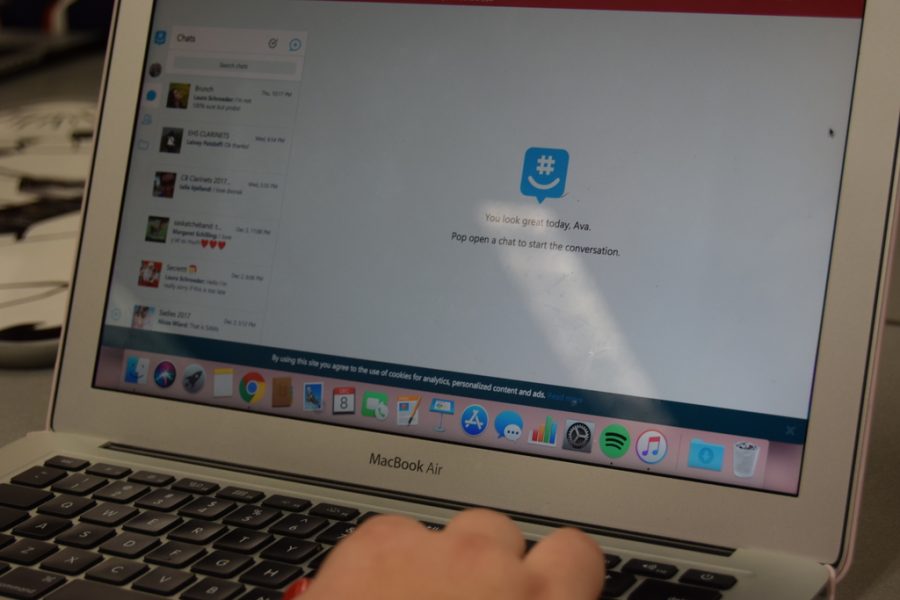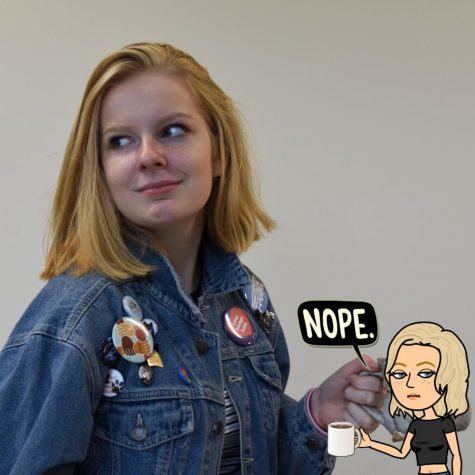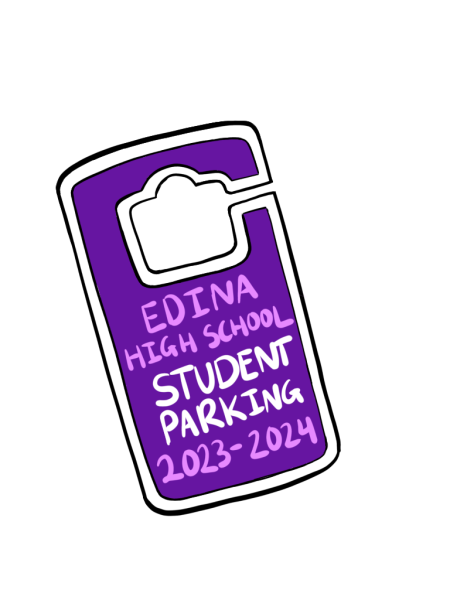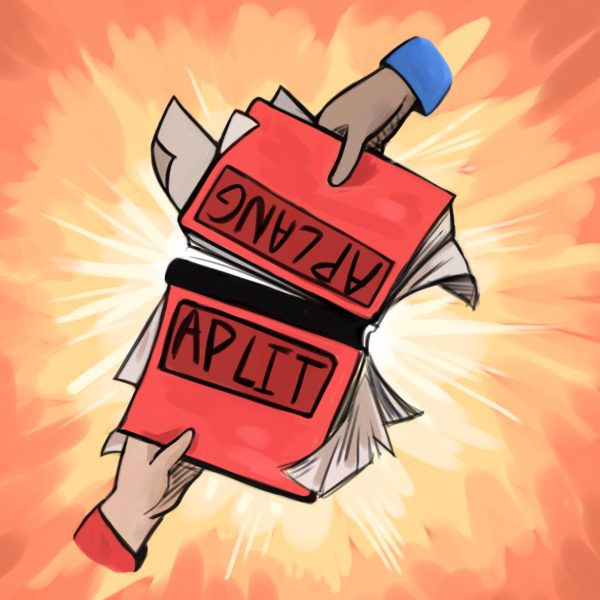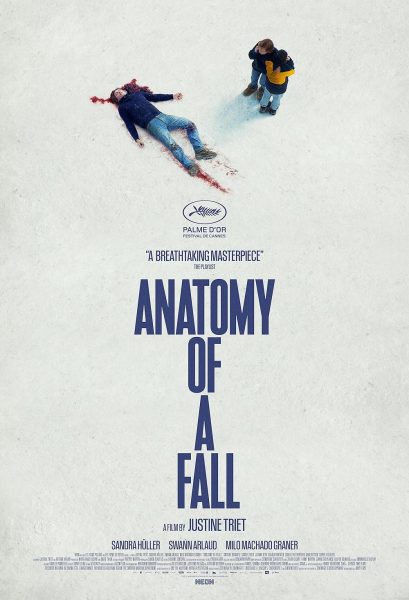“GroupMe Clubs”: Echo Chambers or Change Makers?
GroupMe can be accessed through a user’s laptop or cellular device.
December 9, 2017
GroupMe clubs, or online group chats often consisting of tens or hundreds of members and often organized around a political or social cause, are now an undeniable feature of Edina High School’s cultural landscape. An increasing number of student groups are being created through the group messaging app GroupMe. In these chats, any member of the group can add others, and anyone with a computer or phone can be added. With such large populations and little control over who is allowed to join, these chats often spiral out of control quickly without diligent moderation.
These groups are often initially focused around representing a club or a cause. While it’s possible for real-life action and organization to occur in person, the large number of participants possible in an online environment allows more students to participate than is practical for actual discussion. Hundreds of members flood these chats, causing them to become too bloated and chaotic for anything productive to reasonably occur. They’re often echo chambers: large, private groups of people with similar opinions. Dissimilar opinions are shouted down or denied a presence, leading to more and more members believing that their opinion is the only opinion.
These group chats typically follow a fairly predictable lifecycle: They start out small and focused and maintain the original tenets of their club, then they gain popularity, until finally they hit a crisis point where their population explodes. At this crisis point, one of a few things happens: the group manages to refocus and remain productive, it loses focus and continues to exist as an echo chamber, or it disintegrates entirely. In the vast majority of examples in recent memory, clubs have followed this lifecycle exactly, with the only main difference being what happens after the crisis point.
A few of the most prominent group chats are those representing the Young Conservatives Club, Young Liberals Club, and a club that developed in response to these two, the Young Moderates Club. They began to develop student interest surrounding the 2016 Presidential Election. Importantly, leaders from both clubs were initially open to debate and respectful of one another (read the whole story here). However after the elections, the clubs lost focus. Both had memberships in the hundreds, and became increasingly polarized. The size made it hard for leaders to control the clubs, and they became more forums for criticism of their opponents than action-focused organizations. Last year the YLC was quoted as saying that certain members of the YCC should be “burned at the stake.” This year, the YCC has been involved in numerous controversies, which recently resulted in a lawsuit filed against Edina High School, Edina Public Schools, and two district administrators (read more here).
Both the YLC and the YCC exist in a state of limbo. Neither is presently school sponsored, meaning that there is no teacher responsible for organizing or moderating the club or its activities. However, both call themselves the “Edina High School Young _____ Club,” so they obviously claim to represent the school, or at least its students. Case law precedent states that only sponsored clubs are subject to limits on their speech by school, but the fact that their names represent the school still places some limits on what activities these clubs are allowed to engage in. YCC used Twitter as a platform for public speech, and since the Veterans Day controversies, their Twitter has been taken down by the school. The YLC’s main public presence, its Twitter, hasn’t been updated in over a year, but remains public. In short, neither club is officially sanctioned by the school, but both are still subject to some regulation.
Both clubs demonstrate the core issue plaguing GroupMe clubs; the enormous size leads to a substantial decrease in productivity, until they become basically useless as anything other than an echo chamber. For instance, the YLC held weekly meetings until their membership exploded, at which point these meetings ground to a halt. The Young Moderates developed as a less polarized alternative to the YCC and YLC. While they are growing steadily, recent tweets and conversation in their chat suggest an attempt to legitimize themselves as a group anyone can rally behind. Their size is at the aforementioned crisis point, and the main factor keeping them from becoming a toxic echo chamber like their predecessors is strong leadership that keeps individual members in check to prevent a larger culture change within the club. Whether the YMC will stand the test of time is yet to be seen, but the lack of extreme polarization and strong leadership bode well for their future.
Last year, a unique group organized to meet a specific goal. “Save AP Euro” was formed when rumors began to spread that the popular AP European History class would no longer satisfy the world history graduation requirement, and would ultimately be removed from the high school’s curriculum. Recruitment swelled to the hundreds, but students’ focus and dedication to the cause kept the club from devolving into an echo chamber. Once the goal of the group was accomplished, it quickly dissolved. Save AP Euro is perhaps the best example in recent EHS history of a GroupMe club making substantive progress without losing focus.
During the recent dress code protests, the GirlUp chat’s membership expanded significantly. New members were added so that a response could be coordinated more efficiently throughout the student body. However, these people were not perceived by leadership as being actual club members. Along with everyone else being added, a large number of trolls seeking to intentionally disrupt progress and cause chaos joined the GroupMe. It’s impossible to tell real members from trolls, and they are able to distort discourse as a result. The chat began to lose its focus and devolve into arguments. Initially, this confusion was one of the major factors in the dress code protests that took place in the commons. Group leaders didn’t want the gathering to become a protest, but the gathering was hijacked by trolls. Later, the group chat was flooded by arguments over who was responsible for these protests. In order to repair friction, a new chat was created without many of the members added during the protest. More than most clubs, GirlUp successfully pushed past the crisis point of expansion and returned to its original purpose.
As with any cultural trend, parodies of the original trend have started cropping up; satirical GroupMe clubs have been created to poke fun at more major organizations. In the days following the video posted by EHS Antifascists, a Twitter account and GroupMe was created for the Edina Republican Army (based off the Irish Republican Army), with the stated goal of “fighting for a 32 county Ireland and a tolerant EHS,” according to their Twitter. A Twitter account for the Edina Young Monarchists was also created. While these groups are clearly meant to be jokes, they speak to the wider popularity of GroupMe clubs at EHS. The trend of organizing students mostly via social media to either debate politics or mobilize political action is continuing to grow, and satirical accounts prove that GroupMe clubs are here to stay, for better or for worse. The idea of creating a group chat in order to facilitate action, and the knowledge that original intentions are often lost to large membership counts, has entered the mainstream. The fact that these clubs are now being parodied demonstrates the popularity of the concept, and its now permanent fixture in EHS’s culture.
Social media isn’t going anywhere. Likewise, clubs based around GroupMe and Twitter aren’t going anywhere either. Size and miscommunication, forces inherent to social media, post constant existential threats to these organizations. However, history has shown that social media can be a powerful tool for change. It’s still possible for EHS’s GroupMe clubs to embrace their positive aspects, find solutions to the negative, and become a legitimate vehicle for change.

